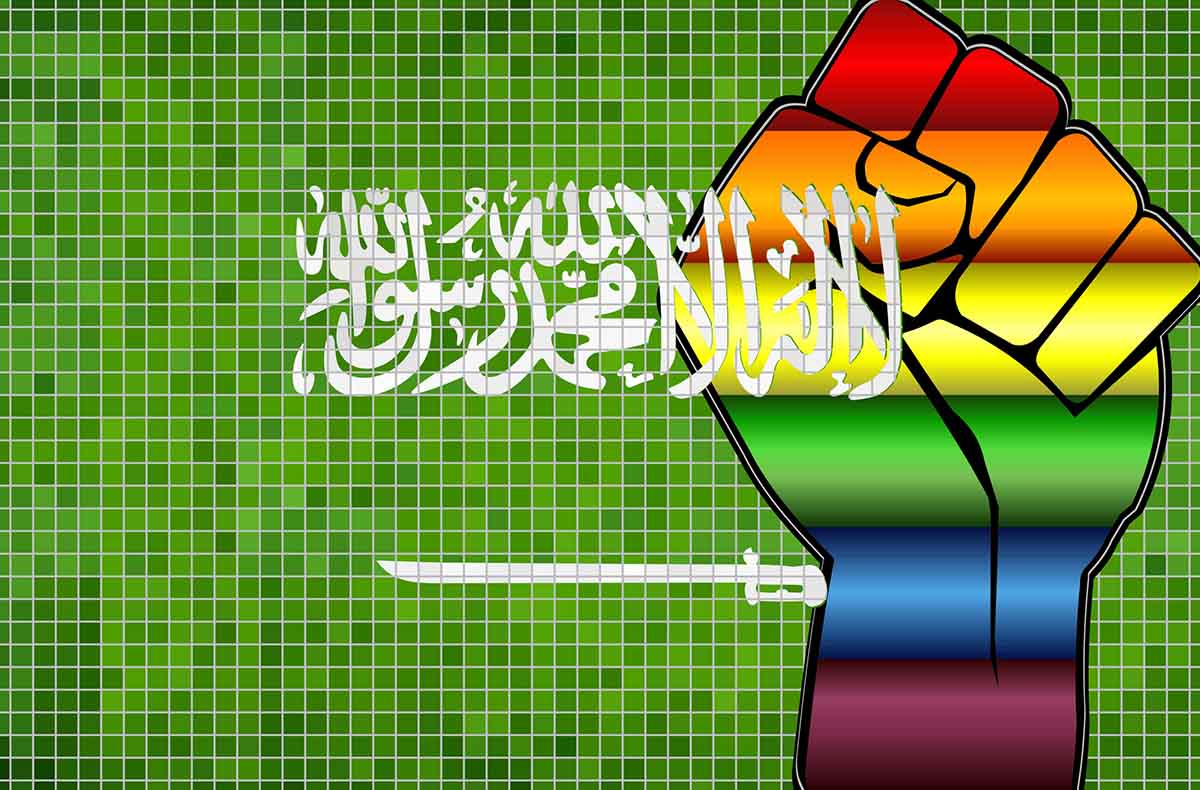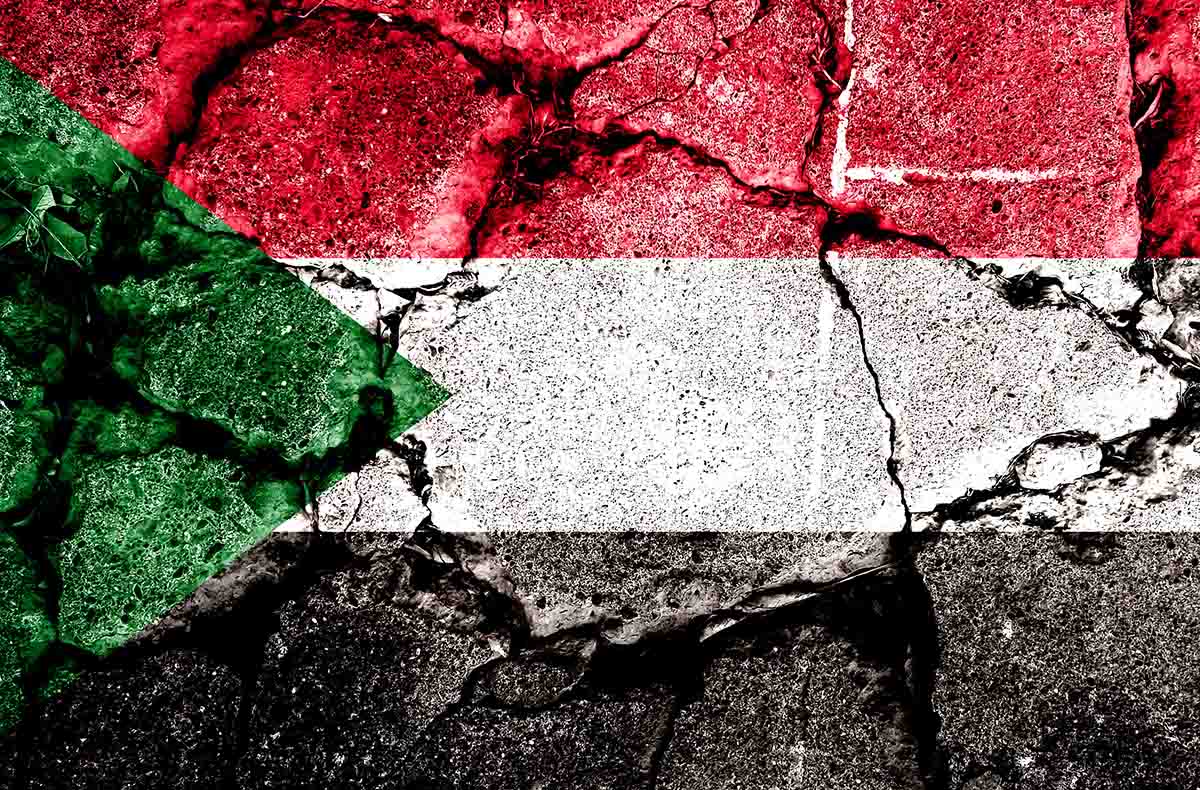
A protester carrying a rainbow flag ran onto the pitch during Monday night’s FIFA World Cup match between Portugal and Uruguay at the Lusail Stadium. The man was wearing a shirt carrying the messages “Respect for Iranian Women” and “Save Ukraine.” He was ushered away by security officials.
A whole host of items have been banned by the Qatari authorities during the ongoing World Cup, but rainbow symbols have faced the most robust crackdown. Qatar’s Islamic homophobic laws, which ban homosexuality and can penalize it by death, have faced growing condemnation, with the West-led criticism gaining even more traction after FIFA barred captains from wearing the “One Love” rainbow armbands, denoting solidarity with the LGBT community.
While certain sporting bodies, such as the Football Association of Wales, successfully negotiated an easing of restrictions to allow fans to don the rainbow colors in certain forms, it is evident that any explicit support for gay rights will continue to face swift clampdown in Qatar.
Even so, what is even more obvious is that many of the estimated 5 billion global viewers of the most-watched sporting event in the world, who mightn’t have been aware of Qatar’s human rights abuses, now know that something as innocuous as a rainbow color pattern seemingly suffices in triggering existential crises for the state and an entire religion.
Qatar 2022 was supposed to be for the Middle East, what USA 1994 was for North America, Korea-Japan 2002 for East Asia, and South Africa 2010 for Africa. Instead, it has been a propaganda disaster for the Middle East and Islam, with the latter forcibly affixed on the PR campaign by the Qatari authorities.
While theocratic realms intrinsically conflate religion with identity, Qatar’s use of Islamic evangelicalism at a sporting event has been especially catastrophic. As World Cup venues have been surrounded by inscriptions of hadiths (sayings of Islam’s prophet Muhammad), and a state-of-the-art pavilion to preach Islamic scriptures to football fans, no one in the organization committee gave due consider to the fact that these very texts are also the source of Qatar’s human rights abuses.
This ranges from gory homophobia to repressive sexism, from murderous blasphemy codes to allowance for slavery—the latter especially damning given Qatar’s horrific “kafala system,” dubbed 21st century slavery, being the cause of the over 6,500 migrant workers’ death in the decade preceding the World Cup. Furthermore, fugitive Islamic preacher Zakir Naik, who has influenced al-Qaeda and other manifestations of radical Islamism with his advocacy for armed jihad, has been preaching Islam on the sidelines of the World Cup contests.
Clearly, if showcasing a liberal rendition of Islam, and in turn a softer image of Qatar, was the goal, it is unlikely to have been achieved through the use of Islam to impose last-minute alcohol bans and bar public displays of love for all. And the Muslim world has been on board Qatar’s PR shipwreck with nary a condemnation coming for the state’s repressive enforcement of Islam.
Qatar, its fellow Islamic theocracies, and the vast majority of global Muslim population largely endorsing the Islamic laws engulfing the FIFA World Cup, should do themselves a favor and not cite “liberties” and “freedoms” while demanding space for Islamic sexism or intolerance for satire in Western states.
Many West-based Muslim groups are in fact describing protests against Qatar’s quashing of basic human freedoms as “anti-Islam,” even urging those Muslims born in European states to stop supporting their national football teams. Just as citing Islamic laws to criticize Islam has long been deemed “Islamophobia,” using Qatari laws to do the same for the state has been declared as “Qatarphobia.”
Of course, nowhere is Muslim hypocrisy more glaring than on Israel. Indeed, instead of owning and addressing the human rights abuses of the Islamic state hosting the World Cup, most Muslim voices have preferred to highlight those of the Jewish state not even participating at the World Cup.
Palestinian flags and armbands were flaunted in the very stadia where the hosts barred political messages that they disapproved of, and Israeli journalists being hounded for doing their job has been celebrated across Muslim countries. Notwithstanding antisemitism being the predominant Muslim contribution to Palestine, to seemingly express solidarity with Palestinians in Qatar—a country that has brazenly used Palestinians as fodder for global jihad—underlines the blatant self-denialism and unflinching refusal for self-reflection in the Muslim world.
This, of course, is not to suggest that anyone has any monopoly over cluelessness or hypocrisy. Qatar’s loudest critics have offered their own renditions of the same, often leaving professional sportspersons in situations where they clearly don’t want to be.
England players taking the knee before their first group match against Iran best epitomized this. The English team performed the symbolic gesture against racial discrimination while playing in a region still practicing modern-day slavery, and playing against a country currently killing protesters who are defying Islamic laws. The English followed up the same in their second contest against the U.S., the country where “taking the knee” as protest originated, while the American team remained standing.
England’s “protests” are akin to “pro-Palestine” rallies taken out by the Muslim Left in Islamic states: a misplaced, self-serving, demonstration of tokenism, carried out after failing to receive permission to take a stand against issues more relevant to the land, which ends up equally insulting the causes taken up and those ignored.
Even so, the violent Judeophobia motivating antagonism for Israel in the Muslim world notwithstanding, at least Muslim and Arab athletes follow through with their conviction by refusing to compete with Israeli athletes at world events, bearing the consequences of sanctions and bans. What exactly have European athletes actually given up in their much-touted support for their ostensible causes in Qatar?
Qatari authorities are using complex tech to silence its activists, with locals facing lifelong incarceration or death for critiquing Islam or the royal family, but it’s Germany’s footballing millionaires who feel gagged and thought best to make a spectacle out of it. Why not make an actual statement by pulling out of the event if human rights, in fact, are indeed “nonnegotiable” for the German football team?
The only European athletes actually boycotting the World Cup are those who haven’t kicked a football in years. They have joined certain pubs and sports bars in making the ultimate human sacrifice of not tuning into the channels showing football for four weeks in solidarity with the thousands dead in Qatar and hundreds of thousands being persecuted.
Political activism carried out by participants at sporting events—especially one aimed at other states—inevitably ends up being divisive, given that no single event can accommodate the innumerable contradicting ideological narratives. Failure to keep the narrative-building outside institutions that should adhere to absolute political and ideological neutrality means inevitable displays of status quo-approved slogans and, in turn, the othering of anyone not adhering to the endorsed messages. This is demonstrated by the Muslim world’s hypocritical boycott of Israel over Palestine, and the West’s hypocritical boycott of Russia over Ukraine, orchestrated by the richest and the mightiest in those blocs.
In Qatar, what should’ve remained a contest to determine who wins at football has been reduced to a shambolic competition to determine who wins at politics, with the football ground being sidelined in the bid to usurp the moral high ground. And actual victims don’t get any free passes for this self-indulgent, self-adjudicated tournament between the world’s haves and have-mores.


